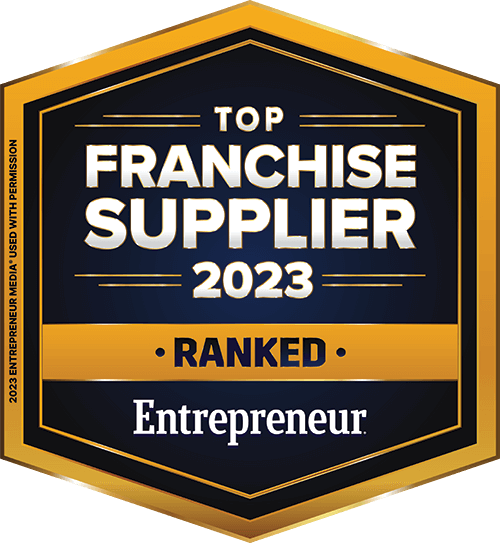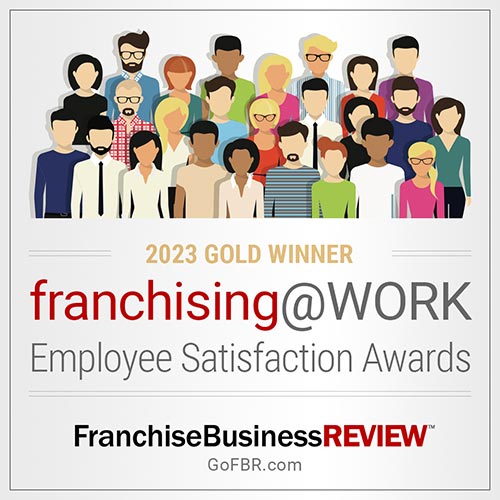A robust Customer Relationship Management (CRM) solution is important to a business because it tracks contact information and allows the sales and marketing teams to personalize communication with those contacts. The following is a step-by-step guide for choosing the right CRM solution for your franchise.
- Your business needs
- Ease of use
- Scalability and customization
- Integration capabilities
- Data security and compliance
- Analytical and reporting tools
- Cost
- Implementation plan
Let’s get started.
Your Business Needs
Begin your business CRM selection process by considering your business size and why your current solution is not working. Different CRM systems cater to different business sizes and types. It’s essential to choose a CRM that aligns with your business’s current needs and future growth. Also consider all the teams and users that will need access to your new CRM and how they will interact with the system. Identify key features your users will require. Determine the specific features needed, such as lead management, sales forecasting, customer service, marketing automation and analytics.
Ease of Use
A user-friendly CRM interface is critical. It will encourage more people on your team to use the system, reduce training costs, improve efficiency and data quality, increase productivity, ensure smooth implementation, enhance customer service and provide flexibility and accessibility.
Scalability and Customization
As your business grows, your CRM should be able to scale with you, accommodating more users and increased data without performance issues. A customizable CRM can grow with the business. As business needs evolve, the CRM can be adjusted to accommodate new processes, departments and user roles, ensuring longevity and continued relevance.
Integration Capabilities
A powerful CRM solution will allow you to seamlessly integrate with existing software and applications to avoid inefficiencies. Assess your current platforms and determine which ones you will want to integrate with your CRM to meet your goals. Check to make sure they can be integrated easily. For example, do you utilize SMS communications with your contacts? Curious Jane advises clients who use SMS to ensure their SMS provider integrates with their CRM.
Data Security and Compliance
Data protection regulations continue to evolve. It is important to make sure your CRM follows these regulations and can implement regulation changes in a timely manner. Compliance with data protection laws enhances customer trust. When customers know their data is handled securely and legally, they are more likely to engage fully and honestly with your business.
Analytical and Reporting Tools
Reporting tools provide valuable insights into contact data and interactions, enabling businesses to make informed decisions. This data-driven approach helps in strategizing marketing campaigns, sales approaches and customer service improvements. They allow companies to track and measure the performance of various aspects of their business, such as sales performance, marketing campaign effectiveness and customer satisfaction. This helps in identifying areas of strength and those needing improvement. Detailed reports can reveal patterns and trends in customer behavior, preferences and needs, allowing businesses to tailor their offerings more effectively and improve customer engagement.
Cost
Make sure you understand all costs involved, including setup, subscription and any additional fees for customization or additional features. Many CRMs are not turnkey and require the purchase of multiple components to provide the solution you need for both your sales and marketing teams. Also keep in mind the CRM’s potential ROI in terms of improved efficiency, higher sales and better customer retention.
Implementation Plan
Map out an implementation plan for your new CRM. If you already have a CRM system that no longer meets your needs, find out if a migration of your current contact information into the new CRM is possible. Ask whether your new solution vendor will provide training or if you will need assistance from a consultant. Determine what type of CRM administrative setup work you can handle in-house and what you will need to contract from outside. Setup examples may include email template development, contact list segmentations, automated marketing flow builds and the creation of reports and dashboards. All CRMs aren’t created equally, and the “right” one for your franchise is the one that will best help you meet your goals. Curious Jane has assisted several clients in choosing their new CRM system as well as with implementation plans, migration of data from older platforms and setup and maintenance of new systems.










